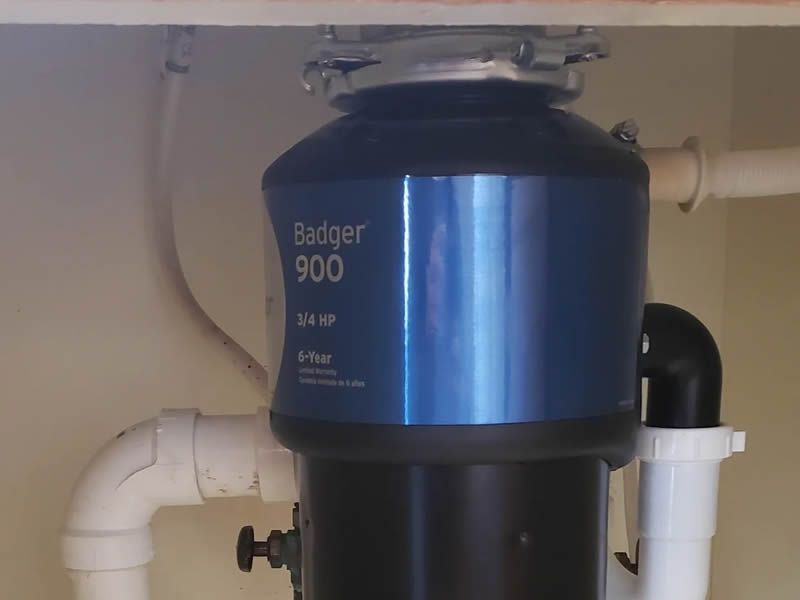Disposal of millions of tons of food waste that large towns produce every year is a big challenge. Without a good garbage disposal mechanism, our cities will become filthy and stinking. The modern garbage disposal system has brought a big change and comfort to the landlords and tenants alike. It is an efficient and more hygienic way to dispose of food waste, keeps trash bags lighter and garbage bins from spilling over. Their simplicity and solid construction make the disposal more secure, potentially crushing away with every passing year. But even this admirable mechanism can clog on certain items. There are seventeen things you must avoid if you want to keep your pipes in your home, drains open and functioning.
1. Oatmeal: Much like coffee grounds and pasta, oatmeal is another expanding item. Uncooked oats in particular are likely to slip through the sink accidentally, only to amass and expand down-line. Find out the uses of oatmeal other than eating. If you’re lucky, they’ll subsequently pass into the sewer. On the contrary, if they don’t, then you may be obliged to learn and follow some advanced level drain-opening skills.
2. Pasta: As you know that pasta expands when drenched in water. For this very reason, you must not drop lots of pasta into your garbage and drains where it will, after all, drench in water and keep expanding. It has a reason, that we shall let you know.
It is the quantity of the items which have been listed here, clog the drains; a small quantity sticking to the plates while washing them in the sink does not hurt. But don’t dispose of an entire pasta cooking pot into the drain, and whatever small amount you do run through the disposal, run the cold water afterward for thirty seconds to push it through the trap and into the mainline. Otherwise, you’re likely to run into clogging problems
3. Bones: Garbage disposals wonderfully grind up and dispose of food waste. But just because they can grind doesn’t mean they grind everything, they simply aren’t designed to deal with very hard items like bones. If you have dropped a chicken wing or fish-bone into the disposal, don’t worry. Disposals are tough appliances and can grind up the infrequent small bone. However, if you drop a rack of ribs down the sink and grind them up, you’re inviting trouble.
4. Coffee Grounds: Never Throw coffee grounds into your garbage disposal; it produces odors in the short term, it can clog the drain in the long run. To comprehend why to imagine, what used coffee dregs look like after they pass through a filter: They look like a dense, thick paste. And that is exactly what you must not let enter into your drain pipes. What to do, if your garbage disposal has started stinking, don’t worry; Leave the dregs of your garbage in the garden, and it will keep the critters out of your garden instead.
5. Nuts: Peanuts are also another garbage disposal threat; never throw a handful of peanuts into your garbage disposal mechanism; it may choke the system in the long run. Take a moment to imagine how peanut butter is made: you dump a handful of peanuts into a grinder, where you spin and mesh them into a thick, sticky paste; this sticky paste is an ideal substance for clogging the drains. Your garbage disposal is an efficient nut grinder. Minimize the number of peanuts and other diversities of nuts that drop into the disposal and your drains will work far more efficiently. Peanut butter works well on sandwiches to trap a mouse, but a disposal line replete with peanut butter is a challenge to clean out and a potential threat to your drain.
6. Trash: Garbage is a misleading term. What we call garbage, is not garbage. Talk to a professional commercial plumber, residential plumber or any handyman, and you’d be shocked to learn how often they need to dig out paper towels, bags, wrappers, and banana-skins that are a drainage-threat. Once the drainage line is choked, you will have to hire the emergency plumbing services of an experienced plumber to unclog the blockages.
7. Egg Shells: Can you throw eggshells in a litter can? Yes, of course. But, will it be a good idea? No. You may have heard that it’s a good idea to throw egg-shells into the litter disposal. The impression is that the shells somehow sharpen the blades fixed on the disposal wall. It’s hard to state where exactly this theory got started, but have you ever heard or seen anyone whetting knives and lawn-mower blades with a box of eggs?
While eggs don’t help to sharpen the disposal blades, yet the shells themselves don’t impair the disposal. However, the next time you break an egg, take a close look at the inner-shell. You’ll notice a thin skin on the inside of the shell that can. Like that thin skin of an onion, it may get free and stick in the drain or around the rotor that throws waste against the wall-mounted blades. Instead of tossing egg-shells into the trash, you’ll be happy to hear that they can be more profitably dumped in your garden.
8. Onion Skins: Onion which is chopped, diced, or cut in chunks, shouldn’t be a problem for your disposal. The problem is posed by the thin skin that lies just below the dry, exterior of an onion. That thin, wet layer is often removed before the onion is chopped, and disposed-off into the garbage. But the layer is so thin that it can evade the disposal, miss the blades and stick in the drain, where it acts like a freight net on a truck, catching more items and holding them in place. Fortunately, it is easy to dodge this problem. Just drop the thinnest outer layer in the garbage, or slice it before throwing it in the litter. It is a work of a few seconds that can save you hours of labor or a costly visit from a plumber.
9. Pumpkin and Fibrous Vegetables: All fibrous vegetables including a pumpkin are a drainage threat. Their long threads can catch on anything that they come into contact with, turning the drainage mechanism into a sticky mess. Avoid shifting that mess into your garbage disposal by disposing of pumpkin guts in the trash can. The same advice holds good for vegetables like celery and rhubarb. Throw long, stringy stems straight in the trash can to keep the fibers from causing a problem, but don’t worry about small pieces. When cut into pieces, the threads are too small to cause any problem.
10. Corn Husks: Corn Husk creates a large amount of waste, and as much as possible should go in the muck-pile of trash, rather than the garbage disposal. The tough, stringy husk and fine threads of corn silk pose a double threat for disposals. So whether your corn is bought from a store or homegrown it will be a good idea to put its husk into a bag and make sure that it does not go into the disposal.
11. Pits: Peaches are delicious, but they have extremely hard, thick pits in their center. As a thumb rule, if you don’t slice it with a sharp knife, it’s not going to break down into pieces at the disposal. It may damage the blades of your disposal and you might be required to repair or replace your disposal altogether. If you make a habit of throwing tough-skinned items in the disposal, if it does not make the motor dysfunctional, at least, you’ll probably have a machine that isn’t managing the waste properly. Eventually, you’ll just get frustrated with the unit and decide to replace it.
12. Cleaning Chemicals: When we talk about cleaning chemicals, we’re not talking about dish-washing detergents. They are good for normal home use. The chemicals to avoid are tough drain busters and industrial-grade cleaners. They can exert excessive strain on your disposal and possibly also the drain-line.
It is recommended to use ice cubes to clean off the disposal blades, and some dish soap to remove any grease pile-ups. And if there is a clog, here’s how to clear it out without using chemicals.
13. Paint: This is one mistake that dyers are particularly likely to commit. Liquid or oil paint should never be poured down the drain. It can stick to the side of the disposal or choke the pipes, where it will begin to harden into an invisible clog. Again, a little paint heavily diluted won’t be any problem as long as it’s diluted. But brushes and rollers should be thoughtfully cleaned, using an appropriate container, while bulk paint should be buried underground.
14. Potato Peels: Potato skins are thin enough to go past the disposal, possibly sticking in the drain. There they can cause the same problems as the egg membrane, acting like a tiny catcher’s hand, blocking the other waste, and creating a clog. Although you need not worry about a few skin pieces, many recipes need several potatoes, and the pile of peels quickly adds up. If you overload your disposal, try these simple appliance fixes to see if you can get it up and running quickly.
There is a little red reset button on the bottom of disposal as well as a wrench that will allow you to spin the motor if there is ever a jam. The hole for wrench is in the center of the bottom of disposal.
15. Shells: Hard shells from the crabs, lobsters, shrimps, and oysters pose a common garbage disposal challenge. All of these shells are too hard to grind up properly, while some of them might slip through them and have a chance to stick in the drain. It is recommended that you do not throw hard substances into the disposal; rather throw them in the trash cans for underground burial. A small trash bag will be handy to remove this stuff from the kitchen immediately.
16. Cooking oil: If you are using plenty of cooking oil for cooking and frying food items in your kitchen, your kitchen environment, and drain pipes, both are endangered. Fried food spills greasy fumes all around the kitchen and the grease sits on the kitchen walls, kitchen appliances like microwave oven, refrigerator and utensils, etc. All things you touch are greasy, sticky, and unhygienic. As you wash dishes in the sink, the grease passes into the main drainage lines. Over the months and months, the compilation may choke the pipes which take this disposal into the main drain.
You may have to hire professional plumbing services to open the clogged drains of your home. What to do in the future to avoid a situation like this. Always use hot water to dilute the thick and sticky grease; it will avoid getting the drains choked. Wash your dishes and cooking pots with hot water. Coldwater will neither wash your dishes and utensils properly but also add to the risk of clogging the drainage system of your house.


